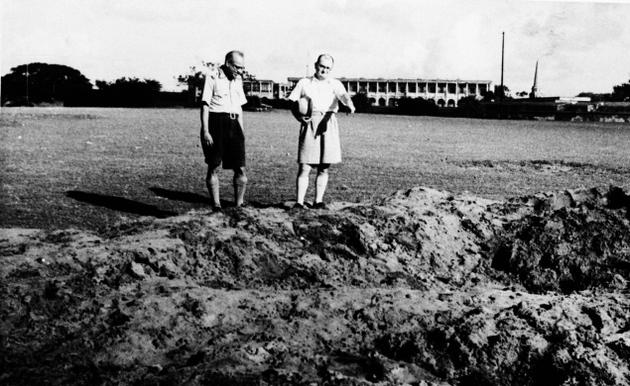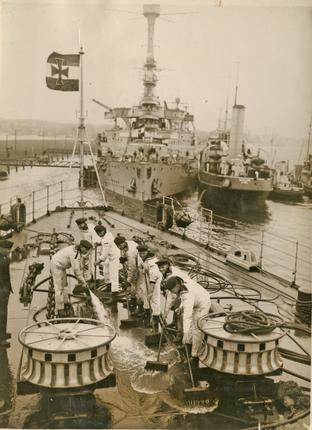
On September 22, 1914, the unsuspecting shores of Madras were bombed by German cruiser, Emden, during World War I.
A whole 100 years on, the terror the word Emden invokes has lived on, and the word has crept into local slang to denote a person who is fearsome.
Yet lost in the narrative of notoriety, is the surprising reputation of generosity and honour the otherwise despised adversary earned, thanks to Captain Karl Von Muller and his crew.
In a series of articles featured in The Hindu on the experiences of those captured by Emden, accounts suggest that the crew, before vanquishing enemy ships, gave time to seamen onboard to collect essentials before being transferred as prisoners into the accompanying German liners.
A survivor of the sunken ship Indus was quoted as saying: “As we went on board, each man was handed a towel and a soap. The German engineers and inmates vacated their cabins to make room for us.”
It wasn’t for nothing that Muller was titled the ‘gentleman of the seas.’ Not only did he reduce casualties to the bare minimum but is also said to have treated his defeated captives well.

B.B Furbester, chief engineer of Pontuporous which was sunk by Emden, recalls, “As I stepped on board, the German chief engineer came forward and shook hands, saying, ‘Mr. Chief, you will be treated like a gentlemen. We can never tell, but we may be prisoners next.’ All the crew raised their caps to me and the skipper came down… also assuring me I would be treated well.”
The hostages were ensured three full meals, including coffee, served diligently at 6 p.m., every day.
Breakfast, consisting of porridge, boiled rice, milk, hot roast beef, and cheese, was provided at 7.30 a.m., while potatoes and sausages were prepared for ‘tiffin’ at noon.
Supper was light with portions of bread and butter distributed at 3 p.m.
The fact that Muller and many of his crew members spoke English was a further source of comfort for the hostages.
A.G.G. writing for the Daily News and Leader found that Muller, in many ways, embodied the best of the spirit of war.
He wrote, “He has fought without hate and without bitterness, with chivalry and good temper and he has shown that it is possible to be a brave man and a gentleman.”
It was said that if ever he were to land in Liverpool, where many of his victims had landed, he would be hosted to a lavish celebratory dinner.
source: http://www.thehindu.com / The Hindu / Home> News> Cities> Chennai> Society / by Nitya Menon / Chennai – September 24th, 2014